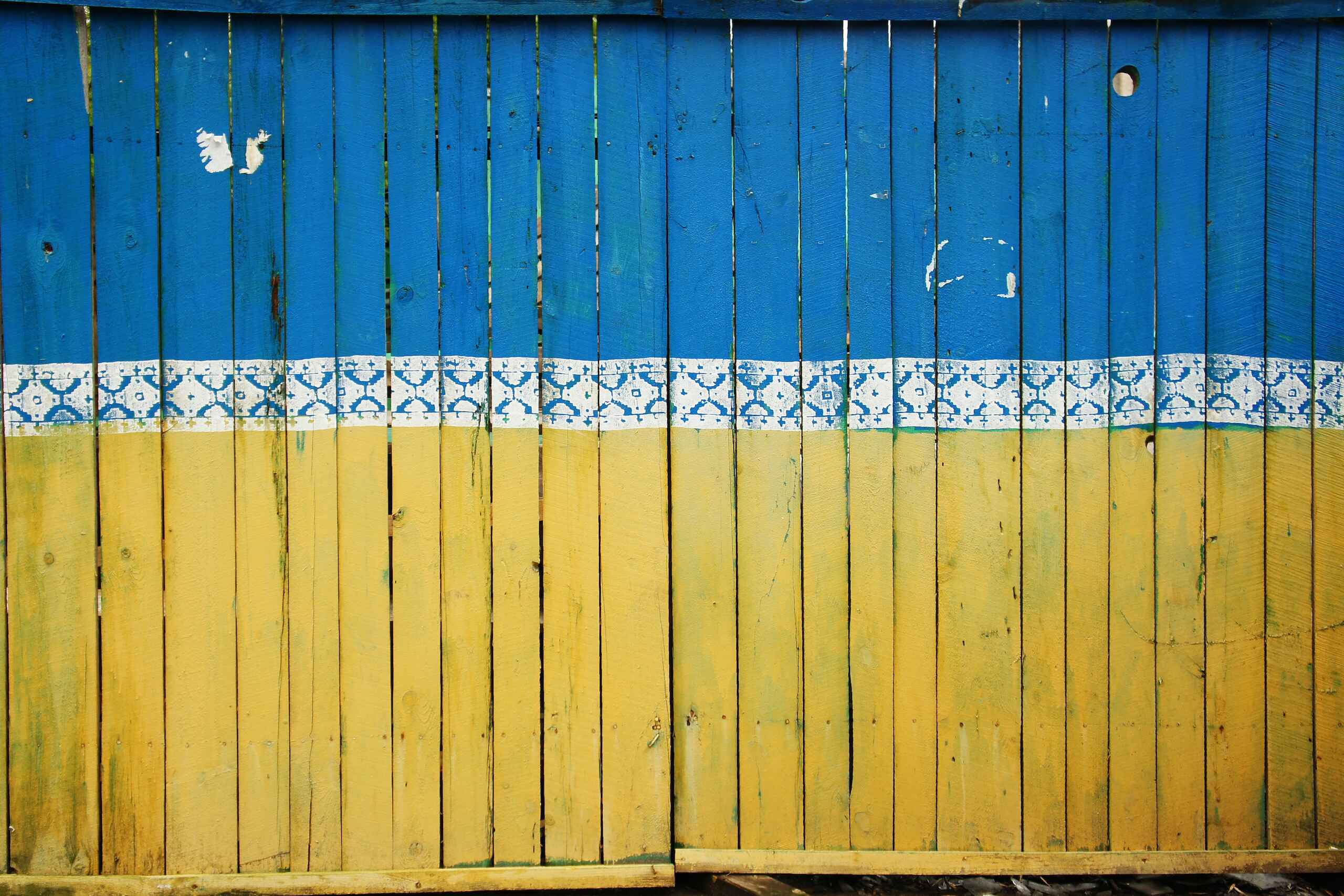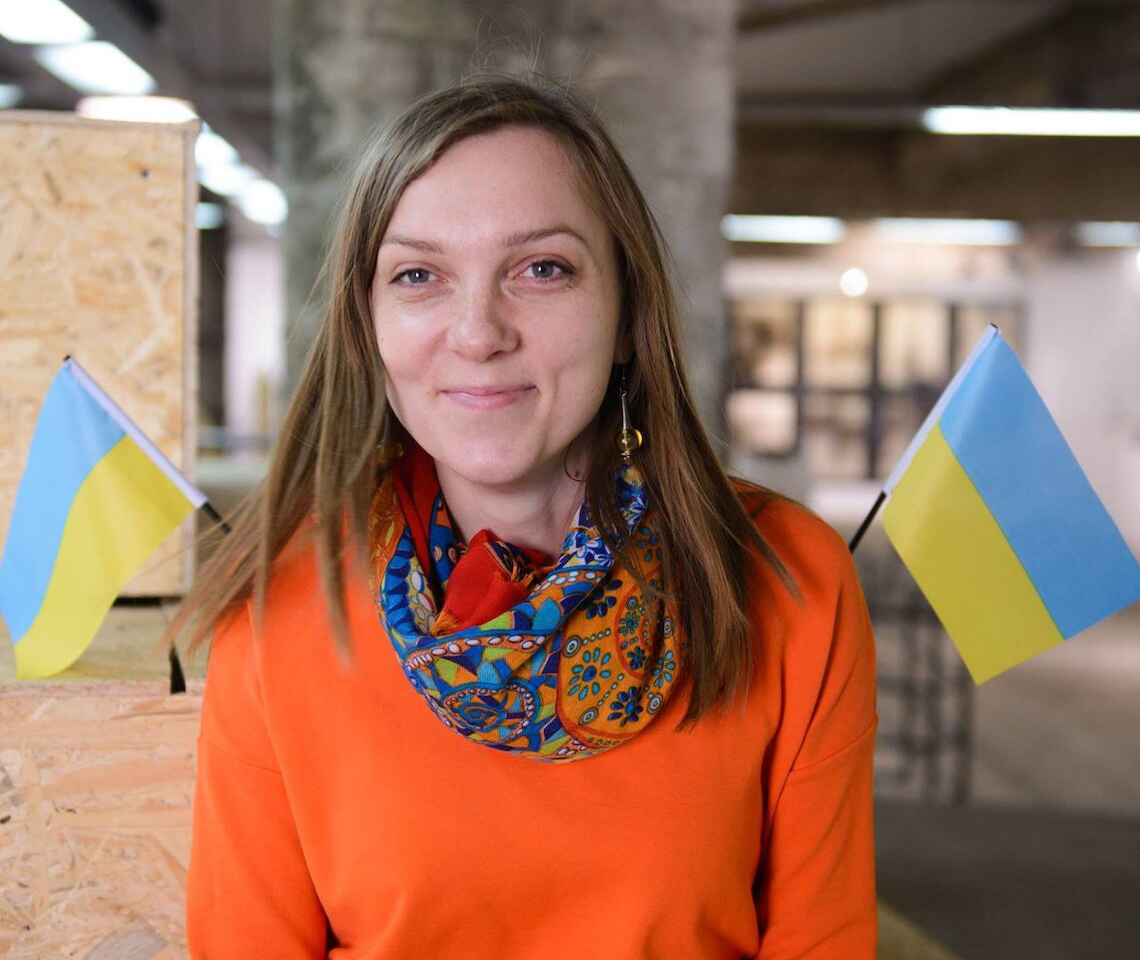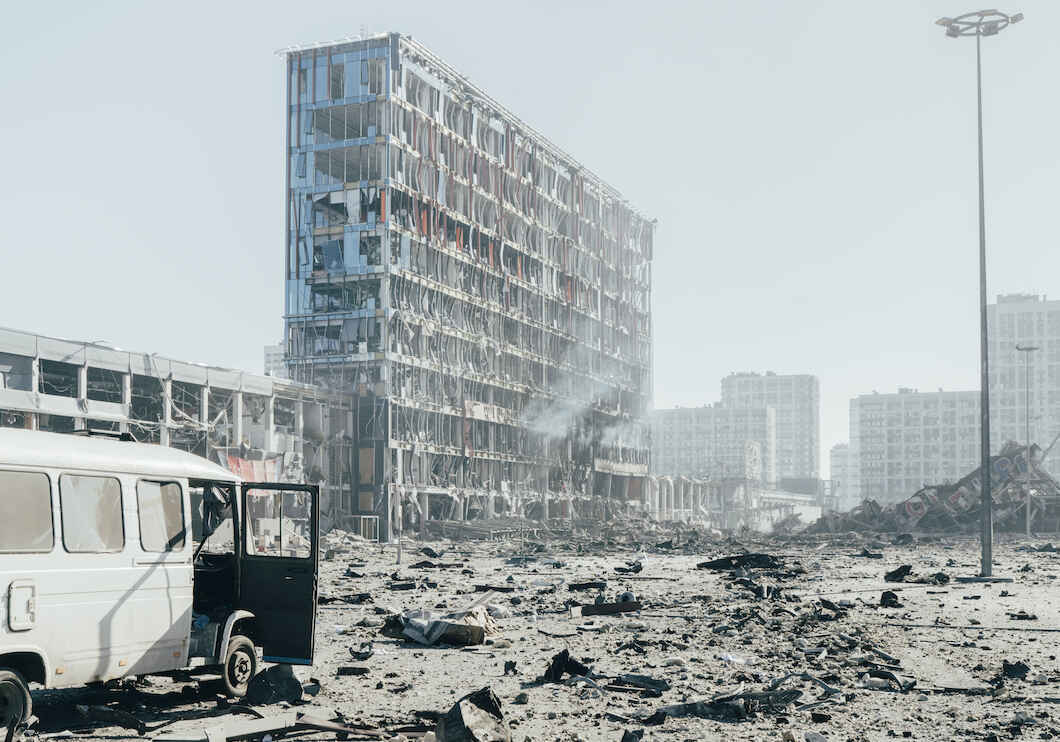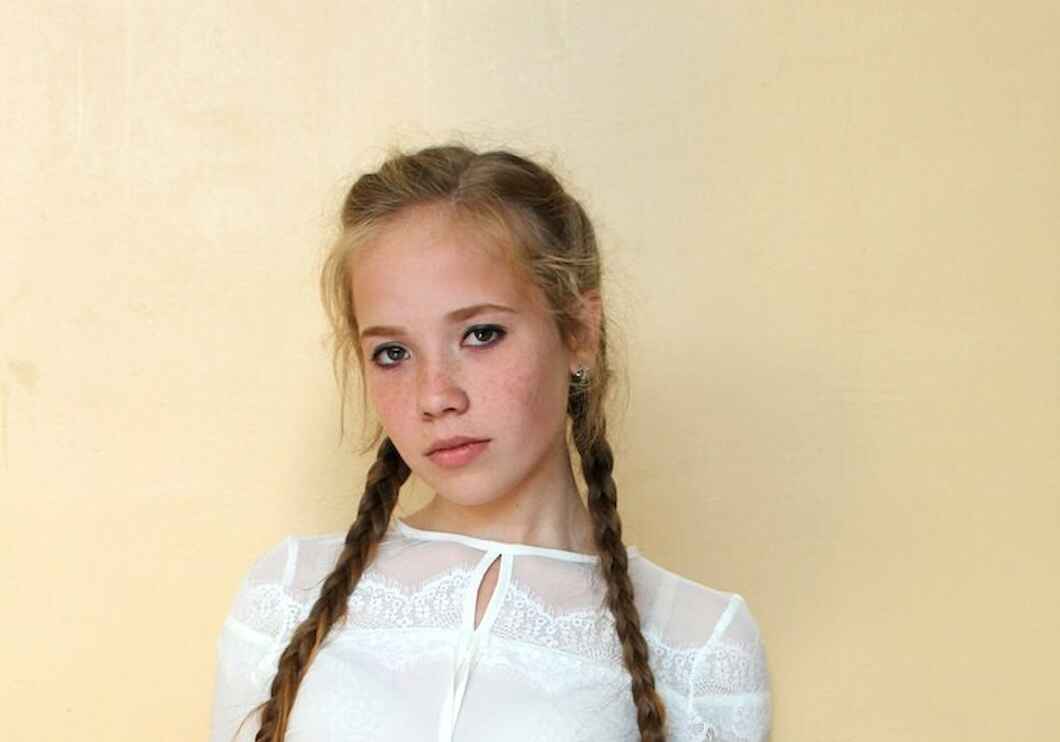
Photo: Foto: unsplash/Tina Hartung
The only way to vocalise what cannot be said
She had to leave everything behind: her family, her home, her life. But the one thing the war on Ukraine could not take from her is her creativity. Artist Oksana Syhareva gives us insights into how she keeps her work alive and what gives her strength to keep going in times of war.

How would you describe the creative scene of Ukraine before the war?
It is very difficult for me to divide the creative scene into a time before the war and one after it has begun. It is not about things that have changed ever since, but about the fact that we are inside this war. It is difficult to reflect on the issue, if you, your home, and your family are under constant attack and bombing.
I have been doing projects in the field of art and culture since 2007 – a lot has changed since then. There is progress in different fields: Individual local projects have developed into some sort of institutionalisation of new cultural initiatives with specific long-term plans. The informal sector has developed actively, also many civic initiatives appeared. Today, we even have state institutions, although they have their difficulties with modern formats.
What impact does this have on culture?
Cultural projects become stronger every year – content-wise and when it comes to management. Digital projects have been evolving since 2017, many digital artists have appeared. But also digital festivals, conferences, workshops, hackathons create this cultural environment and raised the quality to world-class.
How have the Russian attacks on Ukraine influenced this development?
It is hard to answer this question. Our cities are being bombed, some are destroyed to the ground, tens of thousands of civilian victims, dozens of museums, cultural institutions, historical and architectural monuments are bombed, burned, or destroyed. People are fleeing. This is a war, and it has already been going on for more than three months. Our priority now is to win this war and save as many lives as possible.
What about your own work, what are you working on at the moment?
I am currently working on the production of a Documentary UP IN THE AIR Documentary, which I’ve started to develop early in 2020. It’s a movie about a children’s circus studio from Kharkiv. On February 24th2022, I was evacuated from Kharkiv to Lviv. Two weeks later I left Ukraine and found out that the protagonists of my film had been evacuated to Budapest. Right now, I am in Prague continuing to work on the documentary. My tutors from the Czech Documentary Film Institute help me with it.
What did you do before? How has it changed in the past months?
Before in Kharkiv, I worked on several cultural projects every year. Since 2018, I have organised different Virtual Reality (VR) events every year: a conference, a festival, and a workshop. I also had an educational project called the Academy of Visual Arts, but I have stopped all this work. Lately, I don't have much energy to work as I try to help our army as much as possible. We haven’t stopped working on the documentary, though. Together with the team we created a virtual project and took part in the Go East Festival in Wiesbaden. As a refugee, it is difficult to maintain your usual rhythm of life. Often you do not have space to yourself, without someone interfering. Furthermore, I follow the news a lot. After reading about what is happening, I lack the motivation to do anything.
What are your plans? Is it even possible to have plans?
My plans are to finish the film and present it in 2023. There is still a lot of work ahead of me. As soon as I return to Kharkiv, I will restore the educational project and launch several courses in the field of visual arts. There is one more thing: I want to open a glass museum in Kharkiv. I think it is important to have plans, something you can look forward to, it gives you strength and energy. I believe in our victory, the Ukrainian Armed Forces, and therefore I made many plans.
In what ways are people trying to keep creativity alive during these times?
I can only speak for myself. Currently, my husband is in the army, my brother in the military defending Kharkiv – this gives me the power to do as much as I can for my country. Every soldier, doctor, every volunteer and honest person helping to win this war gives me strength for my creative work. People are giving their lives for our freedom, and the only way I can give them gratitude is with my film.
What is the duty of creativity in times of sorrow? Is there any?
Creativity helps to cope with the horror of the war. Everything we feel, see, everything that is too hard to vocalise can be expressed in a creative project – be it grief, hope, sadness, love or fear. I know many artists who continue to work and create their art every day. For us, this is a way of fighting for our freedom. Words and images can be very powerful weapons. The Russian propaganda is actively abusing words to justify and hide their crime. Our artists, journalists, writers, and musicians fight against this. I thank all of them.
What effects will the war on Ukraine have on your country as a creative hub?
I can only fantasise about this. I guess there will be patriotic projects and a lot of reflections on the war. In my mind, many foreign artists will come to Ukraine, cultural exchange with other countries will flourish. There will also be projects about the topic of identity and the protection of rights. But realistically speaking, the cultural scene will be difficult to finance after the war. Although I am sure, artists will do something special for the country anyway.
Was there exchange between Russian and Ukrainian creatives before the war? How is it now?
I have never worked with someone from Russia before. But I cannot speak for others. Ever since the annexation of Crimea by the Russian Federation in 2014, I cannot recollect such cultural exchange. Ukrainian artists who performed in Russia were criticised strongly. The only thing I remember is a musical group from St. Peterburg that performed in Kharkiv. Right now, Ukrainian cultural figures are actively fighting against the presentation of Russian projects in the world. Why? Russia's war against Ukraine is an attempt to kill freedom, democracy and obey an independent people in their own land. For me, it is easy to decide: Should Ukrainian and Russian films be shown at festivals at the same time while Russia are killing and raping Ukrainian children and women? I support my colleagues who are against presentation of Russian projects in the world right now, and I think it is the right thing to do.
How does exchange between creatives from within Ukraine work today? Is there any contact?
Yes, fortunately there is. We have been communicating during this time and continue to do so. New projects are created as far as possible. Funds in Ukraine have been created to support film makers, artists, and journalists. Professional communities will always find ways to help their colleagues.
How can the creative scene help shape your country post-war?
If we talk about creativity as the creation of something new, then these new things will need to be built in all spheres of life: in politics, economics, relationships, education, urban planning, etc. I sincerely believe, that creative people will produce solutions and build a new society.

